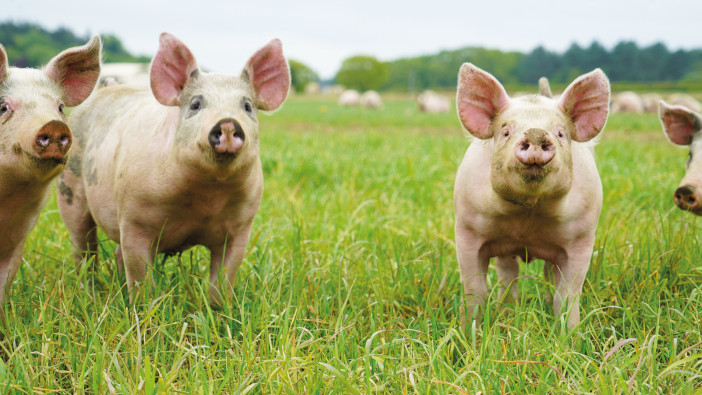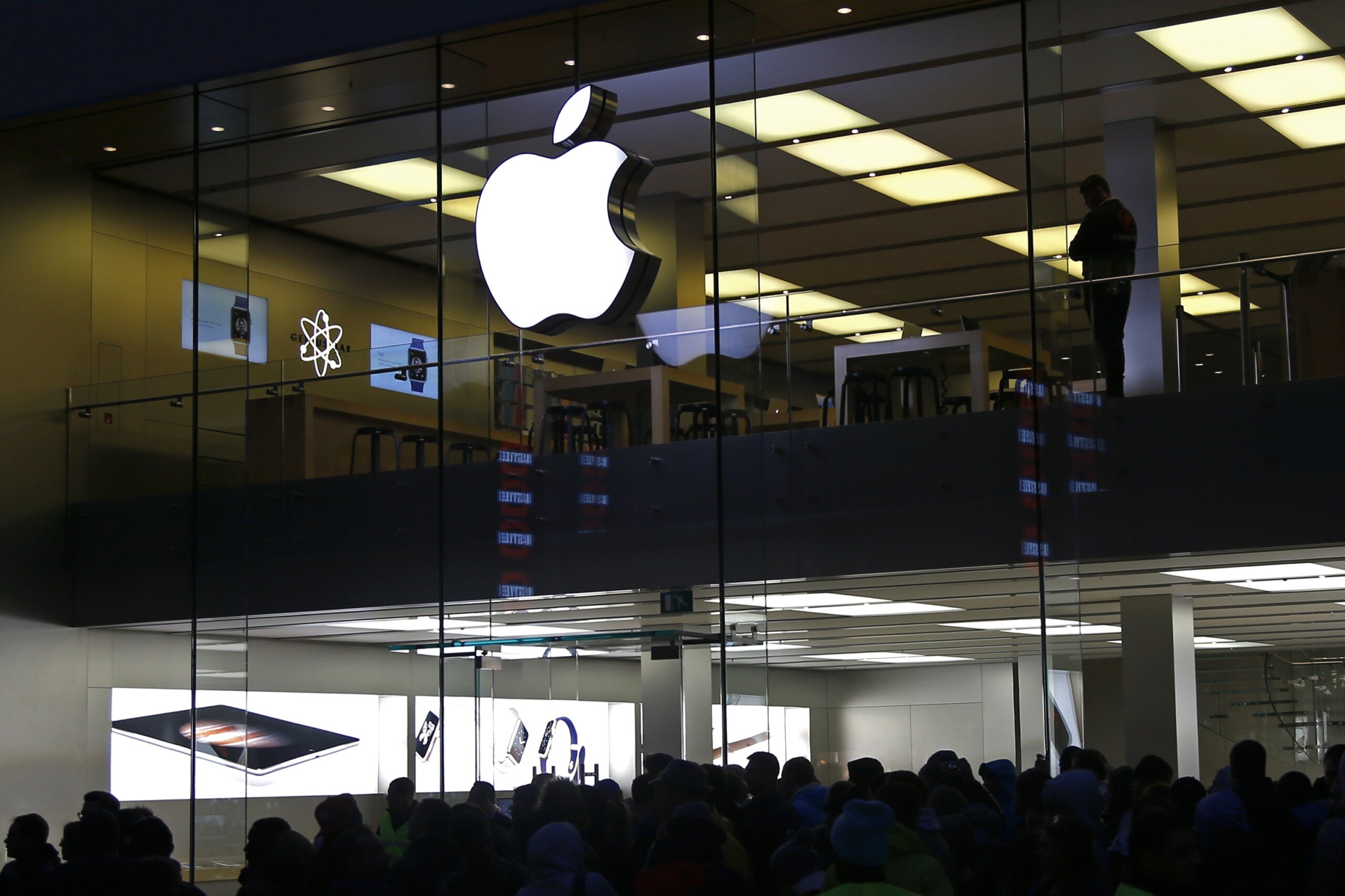Bussiness
Mario Draghi calls for ‘new industrial strategy for Europe’ and €800bn investment boost – business live

Draghi calls for €800bn EU investment boost and new industrial strategy
Over in Brussels, Mario Draghi is calling for coordinated industrial policy and a huge increase in investment to improve the economic situation in the European Union and lift competitiveness.
Draghi, the former European Central Bank chief and Italian prime minister, is presenting a new report on the future of EU competitiveness, which he has been working on for the last year.
In it, he calls for a much more coordinated industrial policy, more rapid decisions and massive investment to stop Europe falling further behind the US and China.
Draghi says that Europe needs to boost its investment by up to five percentage points of GDP – or up to €800bn a year – and much closer coordination between European countries to ensure the money is spent effectively.
Draghi says his report proposes a “new industrial strategy for Europe”, and is granular with 170 different topline proposals.
Speaking in Brussels now, Draghi warns that Europe’s productivity is “weak, very weak”, and point out that growth has been slowing down for a long time.
World trade is slowing, and become less open to European countries, Draghi says, adding that Europe has also lost its main supplier of cheap energy, Russia. Also, it needs to invest more in defence, for the first time since second world war.
Another hurdle, Draghi adds, is that this is the first year that Europe cannot count on population growth to lift growth.
Draghi’s report is likely to influence the debate on EU competitiveness, one of the priorities of the next European Commission, which is due to take office later this year.
Introducing Draghi, EC president Ursula von der Leyen said there is a “wide consensus” that the issue of improving Europe’s competitiveness must be “at the top of our agenda and at the heart of our action”.
Key events
Draghi: Europe must develop a “foreign economic policy”
The third part of Draghi’s report looks at increasing security and reducing dependencies.
That includes economic dependencies – as the raw materials Europe needs are in the hands of a few suppliers….
…and also security dependencies, even though geopolitics have “significantly worsened” in the last 10 years.
Draghi’s solution – Europe must develop a “foreign economic policy”.
That means….
Cordinating preferential trade agreements and direct investments with resource-rich countries, building up stockpiles in selected critical areas, and creating industrial partnerships to secure the supply chain for key technologies.
And, we need to build our defence industrial capacity.
Draghi concedes that these goals are not new – member states are doing this on their own. But they are punching ‘under our power’ – Europe coould be more effective if it combined its resources and coordinated policies, he argues.
Europe must also increase the supply of clean energy, Mario Draghi adds.
He cites Joe Biden’s Inflation Reduction Act (IRA) as an example of how incentives can be used to stimulate development of green technologies.
China’s state sponsored competition is a threat to developing the European clean energy sector, he says.
Draghi’s second recommendation is that Europe must combine “decarbonisation with competitiveness.”
He says decarbonisation is an opportunity for growth, but one that could be missed if European countries fail to coordinate.
Draghi says Europe needs a plan to decouples the price of fossil fuels from clean energy sources, so consumers see benefits from decarbonisation in their bills.
[currently, fossil fuels are still the main power plants “at the margin”, and hence often set the wholesale electricity price in Europe – as this paper explains].
Draghi: One in three EU unicorns has fled
Europe’s problem is not that it lacks smart people, or good ideas, Mario Draghi continues.
The problem, he argues, is that there are too many barriers to commercial innovations, and to scaling them up.
Draghi then points out that since 2008, 30% of unicorns – tech firms that grow to become worth over €1bn – which started in the EU have left.
The majority went to the US, Draghi adds:
30% of our most succesful innovators have moved, and this has to change.
Europe must become a place where innovation flourishes, especially for digital tech.
A weak tech sector will rob Europe of the growth opportunities of the AI revolution, and also hamper companies in the rest of the economy too, he warns.
Draghi: Europe is stuck in a static industrial structure
Mario Draghi then outlines the steps Europe must take – starting with closing the innovation gap with the United States.
Innovation is the first pillar of the report, he explains, citing Europe’s failure to keep up with Big Tech firms.
Giving a gloomy assessment of the situation, Draghi says:
Europe is nowaways stuck in a static industrial structure, populated by mid-technology companies which are already mature.
The leading firms in research and investment spending are the same ones we had 20 year ago – our cars.
Draghi adds that it was the same picture in the US 20 years ago- where their big R&D spenders were “autos and pharma”. Now, though, it’s all digital at the top, Draghi adds.
Draghi calls for €800bn EU investment boost and new industrial strategy
Over in Brussels, Mario Draghi is calling for coordinated industrial policy and a huge increase in investment to improve the economic situation in the European Union and lift competitiveness.
Draghi, the former European Central Bank chief and Italian prime minister, is presenting a new report on the future of EU competitiveness, which he has been working on for the last year.
In it, he calls for a much more coordinated industrial policy, more rapid decisions and massive investment to stop Europe falling further behind the US and China.
Draghi says that Europe needs to boost its investment by up to five percentage points of GDP – or up to €800bn a year – and much closer coordination between European countries to ensure the money is spent effectively.
Draghi says his report proposes a “new industrial strategy for Europe”, and is granular with 170 different topline proposals.
Speaking in Brussels now, Draghi warns that Europe’s productivity is “weak, very weak”, and point out that growth has been slowing down for a long time.
World trade is slowing, and become less open to European countries, Draghi says, adding that Europe has also lost its main supplier of cheap energy, Russia. Also, it needs to invest more in defence, for the first time since second world war.
Another hurdle, Draghi adds, is that this is the first year that Europe cannot count on population growth to lift growth.
Draghi’s report is likely to influence the debate on EU competitiveness, one of the priorities of the next European Commission, which is due to take office later this year.
Introducing Draghi, EC president Ursula von der Leyen said there is a “wide consensus” that the issue of improving Europe’s competitiveness must be “at the top of our agenda and at the heart of our action”.
Eurozone investor morale weakens
Investor morale across the euro area has fallen for the third month in a row.
The Sentix Investor Confidence Index has dropped to -15.4 this month, down from -13.9 in August, and lower than forecast.
Sentix warns that the eurozone economy is “threatening to tip into recession”, and blames the economic problems in Germany.
It says:
The eurozone is struggling with dangerous recessionary tendencies ‘thanks to Germany’. The situation in the rest of the world is also weakening, but investors here are somewhat more optimistic in their expectations.
⚠️ EURO ZONE SENTIX INDEX FALLS TO -15.4 IN SEPTEMBER FROM -13.9 IN AUGUST (REUTERS POLL: -12.5)
— PiQ (@PiQSuite) September 9, 2024
Germany is on the brink of recession after its GDP shrank in the second quarter of this year. Its economy has been hit by high energy costs since Russia’s invasion of Ukraine, and its car sector has struggled to cope with competition from cheaper Chinese-built electric vehicles.
Kalyeena Makortoff
Barratt and Lloyds Banking Group have launched a £150m joint venture with the government body Homes England, that will lead to the UK’s largest housebuilder and mortgage provider capitalising on Labour’s plans to build 1.5m new homes.
The combined venture, known as the MADE Partnership, will oversee multiple large-scale projects, including town extensions, new garden village-style communities and brownfield developments, each made up of 1,000 to 100,000 homes and community facilities.
The government’s housing and regeneration body, Homes England, said the partnership would “ have the finance, tools, expertise and partners required to ensure a cohesive approach to delivering a fabulous place that people want to live and work”.
The venture will initially be backed by up to £150m in funding, provided by Barratt, Homes England and Lloyds, which will hold equal equity stakes.
Could this be omne trium perfectum? Developer Barratt, lender Lloyds and the Gov, Homes England collectively put £150mn into a residential development pot to get large scale schemes off the ground @_DamianShepherd https://t.co/cMRqOrlhw9
— Emma Fildes (@emmafildes) September 9, 2024
But while MADE has described as a “long-term partnership”, the announcement of its launch on Monday did not included any timescale or housebuilding targets.
UK jobs market softens as wage growth slows
We also have worrying signs that the US jobs market is cooling.
The latest UK Report on Jobs from KPMG and REC shows that the UK labour market softened in August, with vacancies falling for both permanent and temporary staff.
The number of permanent staff positions fell at the fastest rate since March, for the 23rd month in a row, with reports of “reduced demand amongst companies for new staff”.
This has led to a slowdown in earnings growth – permanent salaries meanwhile continued to rise, but at the weakest pace since March.
Pay for temporary positions rose at the weakest pace for three-and-a-half years.
Bad news for workers – but it may cheer the Bank of England, as it looks for signs that inflationary pressures have eased.
Jon Holt, chief executive and Senior Partner of KPMG in the UK, suggests the gloomy tone from the new Labour government may be deterring firms from taking on staff.
Holt explains:
“Recent Government warnings that the UK’s economy may weaken further before improving add to the overall sense of uncertainty, affecting recruitment plans. Firms holding back from hiring led to a sharp contraction in the number of people placed into permanent roles in August amid continued decline in demand, extending the downturn in the UK’s labour market.
“The news that while salaries rose last month it was at the weakest rate since March could help make the case for more rate cuts when the [Bank of England’s] Monetary Policy Committee meets to decide the future path of interest rates.
A second survey from accountancy firm BDO also shows the UK jobs market weakening.
BDO’s employment index has fallen for the fourteenth consecutive month, to its lowest reading since January 2013.
BDO says:
This reflects ongoing concerns in the job market, including falling job vacancies and more people claiming unemployment-related benefits, which reached its highest level since December 2021 according to the Office for National Statistics.
Boeing reaches tentative deal with union to avert damaging strike
Elsewhere in the airline industry, Boeing may have struck a deal to avoid a strike which would have added to its list of problems.
Boeing said yesterday it has reached a tentative agreement with a union representing more than 32,000 workers in the US Pacific Northwest.
The proposed four-year contract includes a general wage increase of 25%, a commitment to build the next commercial airplane in the Seattle area, and better retirement benefits.
If ratified by Boeing factory workers near Seattle and Portland on Thursday, the deal could help avert a possible crippling strike set for as early as 13 September.
The International Association of Machinists and Aerospace Workers District 751 called it “the best contract we’ve negotiated in our history”.
The deal also gived the union greater input in the safety and quality of Boeing’s production system – an area in the spotlight following the crashes of two 737 Max jetliners, and the loss of a cabin panel in a midair blowout.
Michael O’Leary calls for air traffic control chief to resign over Gatwick disruption
In the airline industry, Ryanair boss Michael O’Leary has issued a fresh call for the chief executive of air traffic control (ATC) provider Nats to resign.
O’Leary urged Martin Rolfe to step down and “allow someone competent” to take over after flights were disrupted at Gatwick Airport on Sunday due to “Nats staff shortages”.
The Ryanair chief declared:
“UK Nats staff shortages caused multiple flight delays and cancellations at Gatwick Airport yesterday, Sunday September 8.
“This is the latest in a long line of cock-ups by UK Nats, which has yet again disrupted multiple flights and thousands of passengers at Gatwick. Airlines and passengers deserve better.
“Ryanair again calls on UK Nats chief executive Martin Rolfe to step down and allow someone competent to run an efficient UK ATC service, which airlines and passengers are entitled to expect.
“If he won’t go, then (new Transport Secretary) Louise Haigh should sack him.”
Nats was hit by criticism last year, when a single piece of rogue data in a flight plan caused thousands of flights to be cancelled, and when staff illness forced flights to be grounded at Gatwick:
The pound has slipped to its lowest level in nearly a week this morning.
Sterling is down 0.2% at $1.3095, the first time it’s been below $1.31 since last Tuesday.
Stocks are rebounding in London at the start of trading, after the worst week of 2024 so far.
The blue-chip FTSE 100 index is up 49 points, or 0.6%, at 8230 points – clawing back over three-quarters of Friday’s fall.
Gambling firm Entain is the top riser, up 5.6%, after reporting online revenue growth ahead of expectations this morning.
Banks and mining companies are also among the risers.
But luxury group Burberry is a rare faller, down 1.5%. Luxury stocks have been hit recently by concerns that China’s economic recovery was faltering; Burberry is already being ejected from the FTSE 100 in the next reshuffle.
Oil prices jump as storm approaches Gulf Coast
Economic slowdown worries hit the oil price last week, sending it to its lowest level in almost 18 months.
This morning, though, Brent crude has gained almost 1%, rising to $71.10 per barrel.
This is partly due to concerns over a potential hurricane system approaching the U.S. Gulf Coast, which could possibly cause disruption to supplies.
A weather system in the southwestern Gulf of Mexico is forecast to become a hurricane before it reaches the northwestern U.S. Gulf Coast, the U.S. National Hurricane Center said on Sunday. The U.S. Gulf Coast accounts for some 60% of U.S. refining capacity, Reuters reports.
However, Morgan Stanley has cut its forecast for oil prices in the final quarter of this year. It now predicts Brent crude will average $75 a barrel in October-December, down from an earlier projection of $80/barrel.
More bearishness for crude oil.
Morgan Stanley cuts Brent crude price forecast for Q4 as demand concerns grow.
They cut their projection from $80 to $75 after weak Chinese demand and signs of a slowing U.S. economy. pic.twitter.com/qeMLDjtsgS
— Bad Trader (@BadTraderApp) September 9, 2024
Aldi shoppers treating themselves as cost pressures ease
Aldi’s UK boss has also revealed that its shoppers are treating themselves to more expensive products as cost of living pressures start to ease.
The supermarket reports that customers are “trading up” to its premium own-label products such as Wagyu steak, premium cheese, ready meals, brioche buns and smoked salmon.
Aldi UK chief executive Giles Hurley has told the BBC:
“It’s still tough out there for millions of families but inflationary pressures are easing for some.
“For others, it’ll be a decision not to use hospitality but to celebrate at home instead.”
Aldi had record sales and profits for 2023. Growth far slower now, though. But boss says they’re pressing on with expansion and premium own label is on the rise. https://t.co/0wwTBrzOvj
— Emma Simpson (@BBCEmmaSimpson) September 9, 2024
Aldi plans store expansion after profits more than double

Sarah Butler
Aldi is to open a further 23 stores this year after profits more than doubled last year to almost £537m.
The supermarket has just announced it would invest £800m in the UK market through the rest of this year including opening 23 more stores, and had signed a £750m deal with Kent-based grower AC Goatham & Son including establishing the first ever ‘Aldi Orchard’ on a 200-acre plot on New Green Farm in Gravesend dedicated to growing fruit for the chain.
The supermarket – which opened about 30 stores last year – said sales increased 16% to £17.9bn in 2023, its highest ever period of sales growth.
However, since then sales growth has slowed as all the traditional grocers, including Tesco and Sainsbury’s, have introduced schemes to price match Aldi on key items. The group will open about 30 stores again this year in total, down from about 50 per annum in the years before 2023.
The retailer, which currently has over 1,000 stores, has previously announced plans to scale to 1,500 stores across the UK.
The retailer, which aims to be the cheapest in the UK, said it had invested almost £100m in over 300 price cuts in the last three months on items including fish goujons, chicken breasts, potatoes and basmati rice.
Giles Hurley, the chief executive of Aldi UK and Ireland, said:
“For every £1 of profit generated last year, we’re investing £2 this year – opening more stores and building the supply infrastructure to bring high-quality, affordable groceries to millions more families the length and breadth of Britain.”
China’s PPI still stuck in deflation
Chinese producers continue to slash their prices, new data today shows, in a sign of weak demand.
China’s producer price index (PPI) – which tracks prices at the factory gate – fell by 1.8% in August compared with a year earlier.
That’s the largest fall in four months, and a bigger decline than expected – which will add to concerns over the health of the global economy.
Junyu Tan, North Asia Economist at Coface, explains:
“The ongoing deflationary pressures boil down into a broader problem of production surplus, which is still outstripping demand.”
However, this did not immediately feed through to consumers’ pockets. China’s headline CPI inflation rate rose to 0.6% in the year to August, up from 0.5% in July.
China August CPI y/y +0.6% (est +0.7%, last +0.5%)
China August PPI y/y -1.8% (est -1.5%, last -0.8%)The Chinese disinflation effect continues…. pic.twitter.com/VWbRcN5QIV
— Mario Cavaggioni (@CavaggioniMario) September 9, 2024
Introduction: US recession worries weigh on markets
Good morning, and welcome to our rolling coverage of business, the financial markets, and the world economy.
Here we go again (again). Investors are experiencing another bout of angst over the health of the US economy, creating a chilly feel in the markets.
Spirits are low after Friday’s disappointing US employment report, which showed that fewer jobs were created last month than hoped.
Non-farm payrolls rose by just 142,000 in August, while the payrolls for June and July were slashed, leaving traders fretting that the US jobs market – and the wider economy – was cooling.
In better news, the unemployment rate dipped to 4.2% – but the report overall has left investors baffled as to how the US Federal Reserve will react. An interest rate cut later this month feels inked in – but will it be a gentle quarter-percentage point (25 basis points) reduction, or a dramatic half-point cut?
Instinctively, investors would like a larger cut in borrowing costs – except, if that happens, it implies the Fed has serious concerns over the health of the US economy.
Stephen Innes, managing partner at SPI Asset Management, explains:
For traders, this means more of the Fed’s favourite guessing game. The report wasn’t bad enough to scream “panic mode,” but indeed not good enough to keep the 50 bp rate cut whispers at bay.
The problem? This delicate balancing act leaves everyone wondering: will the Fed take a cautious 25 bps step, or does a bigger 50 bps cut suddenly feel more necessary?
One thing’s for sure: whatever the Fed does, the markets are left doing the one thing they hate most—waiting in uncertainty.
And we can see the impact of this in the markets. On Friday, the US S&P 500 share index fell by 1.7%, while the tech-focused Nasdaq Composite tumbled by 2.5%.
This has knocked Asia-Pacific markets today, where China’s main stock indices are down over 1%, the Hong Kong Hang Seng is down almost 2%, and the South Korean Kospi index is off 0.7%.
Disappointing economic growth figures from Japan have added to the gloom; Japan’s Q2 GDP growth rate has been revised down to an annualised rate of 2.9% for April-June, down from a preliminary estimate of 3.1%.
Japan’s Nikkei share index began the session with a 3% drop, but actually managed to claw its way back to finish 0.5% lower.
European markets, which fell on Friday, are set for a slightly higher open:
⚠️ EUROSTOXX 50 FUTURES STXEc1 UP 0.42%, DAX FUTURES FDXc1 UP 0.39%, FTSE FUTURES FFIc1 UP 0.48%
— PiQ (@PiQSuite) September 9, 2024










